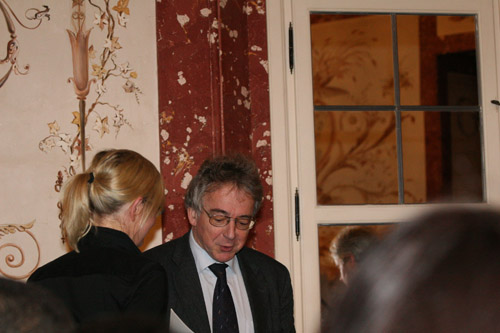
Fighting the war on poverty with high quality early childhood education programs is an issue discussed and supported by numerous contributors to جهانی جستجو برای آموزش و پرورش رشته. Researchers, educators and policy makers have argued that vital learning can and should begin before age 5. When schooling starts for poor children at kindergarten or first grade they have already missed out on vital opportunities to develop skills needed to help them thrive academically, socially, physically and emotionally in their early years of learning.
امروز در جهانی جستجو برای آموزش و پرورش, it is our honor to share the views of Professor Dr. Wolfgang Schneider on pre-school learning and additional matters related to the German and other education systems.
دکتر. Wolfgang Schneider is currently Professor of Psychology in the Department of Psychology, University of Wurzburg, آلمان. His research interests include the development of memory and metacognition, giftedness and expertise, the development of reading and spelling, as well as the prevention of reading and math difficulties. He was Vice President and President of the German Psychological Society (2000-2004), and also Vice President of the University of Würzburg (2004-2009). He is author and co-editor of about 40 کتاب, محتوی توسعه حافظه بین دو و بیست, which he co-authored with Michael Pressley. He is currently President of the International Society for the Study of Behavioral Development (ISSBD).

تعدادی از نظرات برجسته در ایالات متحده است که آموزش و پرورش پیش دبستانی باعث تفاوت قابل توجهی در موفقیت کودکان در مدرسه ابتدایی وجود دارد. What are the essential elements of this education and what is the impact on child development? Do you believe it can have a significant impact on the achievement gap between affluent and poor children?
Early language skills have to be developed. This is something that the German government is trying to intensify at the moment. We have made some progress regarding the phonological training programs in our country. We also have evidence that training children in phonological awareness helps them to develop the first stages of reading and spelling in school. We have evidence regarding early math training programs too and there are a few rather effective approaches there.
So there has been evidence that early pre-school programs make a difference, particularly for kids at risk. We did a couple of studies with children at risk and compared their improvement with normally developed children. We found that children at risk really can catch up if they have training in the early years. And when they are able to move up to the same level as normal kindergarten kids, they seem to be able to develop well in school.
What is the nature of the kindergarten training programs that you designed and what impact has it had on the mental development of children? Are the programs equally as effective with affluent and poor?
We designed a popular training program with two components. One focuses on phonological awareness in both the broad and narrow sense. Phonological awareness in the broad sense would be something like rhyme identification or syllable segmentation. Phonological awareness in the narrow sense means identification of phonemes in syllables. We found it was possible to get German speaking kindergarten children to identify phonemes in syllables and words, and those kids who satisfied that criteria were able to acquire reading and spelling skills earlier than usual. We combined the phonological awareness training with letter-sound coordination training. And so for some frequently used letters, ما کودکان آموخت که چگونه آنها به واج پیوند. This helped the children pick up the letter phonemes training in school. We had control groups in our studies that did not receive phonological training but participated in the usual kindergarten program. Thus we were able to compare kids who were trained and kids who did not participate. We discovered that the trained kids had an advantage by the end of kindergarten and kept that advantage during their first years in school. It’s very important that there was a long lasting effect here. Particularly with kids who had poor initial skills.
Right now we are developing an early educational program for kindergarten children for all 16 states in Germany. We will finish our proposal at the end of 2012.
آیا شما فکر می کنم که آزمون PISA یک اقدام موثر از طیف گسترده ای از استعداد ذهنی دانش آموزان است?
I don’t think it’s an effective measure of the full range of mental aptitudes. It does give you a good impression of 15-year-old students’ مهارت خواندن, مهارت های ریاضی و توانایی خود را برای مقابله در منطقه علم, but we don’t get any evidence about their intellectual abilities. به 2000 we included a measure of non-verbal intelligence in a German extension of the PISA study which compared performance among the 16 German states and which was based on a large sample of about 50,000 دانش آموزان. When we assessed the impact of intelligence on performance in math, reading and science, we figured out that non-verbal intelligence was a strong predictor in most of these tests.
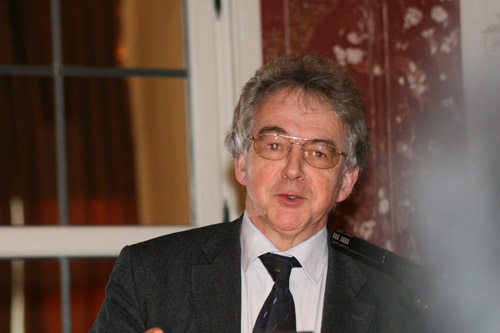
Do you think that in some countries, teaching to the PISA test is now occurring?
I think that this probably does happen and I think that is a problem. با این حال, I also believe that the way the PISA organization process works makes it difficult. In Germany for example, schools are selected at random. And there is almost no chance for a school to escape once it has been selected. I suppose there could be a couple of schools in the sample that have practiced for the test but we don’t think that would apply to the entire sample.
Do you think that some countries have educational curricula that provide better preparation for the test than others? Does it surprise you that “grinder” کشورهایی مانند کره جنوبی و کشورهای ساختار کمتر مانند فنلاند هر دو کار را انجام بسیار خوب در آزمون?
همانطور که به تاثیر سیستم های مختلف آموزشی در نتایج حاصل از آزمون PISA, به نظر می رسد بسیار دشوار به آمده تا با نتیجه گیری روشن. شما یک گروه مختلف از کشورهای موجود در نمونه PISA با سیستم های مختلف آموزشی, so you have to be very careful when you compare. با این حال, الگوهای موفقیت برای مشاهده نمونه های مختلف PISA که ما از دیده ام 2000 به 2009 seem to be rather consistent for most of the countries participating. The countries at the top for reading and math, such as Finland and the Asian countries, are famous for their superior curricula in these domains and their competent training programs. So their excellent performance does not seem to be surprising.
The Finnish educational system really focuses on all children, including the weak children, در کلاس های درس. به عنوان یک نتیجه, the achievement variance in Finnish children is much smaller than the variance in children in most other countries. So Finland is successful with bringing all their children up to a high level, which many other countries do not achieve.
When you look at the instructional procedures in a country like South Korea, you see that there is a lot of drilling and practice and very heavy workloads on the students. This is something we do not have in Germany. So I think the quantity of instruction in South Korea makes a big difference here. In former times, Benjamin Bloom in the US already noticed that the quantity of instruction and the time given to reach a criterion is usually a good indicator of student outcomes.
What are the key strengths and weaknesses of the German educational system as you see it?
In Germany we have different curricula in 16 different states. A couple of states, including Bavaria and Saxony, seem to do very well and may even compare with the Finnish achievement scores. The teachers follow the curriculum pretty strictly, which seems to make an impact. We have systematic findings that show while some of our states perform very well others perform poorly. Each state has its own policy. The policies differ a lot, and the states are not able to agree on a common curriculum. Our federal ministry of education has tried to change that but it is difficult as our law states that education must be linked to the state policy.
What is the mix of arts in the usual curriculum in Germany? How do you the see role of the arts in primary and secondary education?
I believe the arts are underestimated in our system. Whenever teachers have to cut hours in a curriculum, the arts get cut first. We have to change that. I believe the arts are important. I think we should start an arts education at the beginning of elementary school, which is not the case now. The major argument against the arts is always that kids shouldn’t do too much in the early years of their education where the emphasis must be on reading, writing and math. Thirty years ago this was not the case as music education started earlier. Now that has changed and it is not a good development.
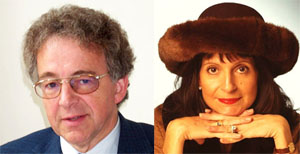
Photos courtesy of Professor Dr. ولفگانگ اشنایدر.
در جهانی جستجو برای آموزش و پرورش, من و پیوستن به رهبران فکری در سطح جهان شناخته جمله سر مایکل باربر (UK), دکتر. مایکل بلوک (US), دکتر. لئون Botstein (US), استاد خشت کریستنسن (US), دکتر. لیندا عزیزم، هاموند (US), دکتر. Madhav Chavan (هند), پروفسور مایکل فالن (کانادا), پروفسور هوارد گاردنر (US), پروفسور ایوان هلمن (هلند), پروفسور کریستین Helstad (نروژ), ژان Hendrickson (US), پروفسور رز Hipkins (نیوزیلند), استاد کورنلیا Hoogland (کانادا), خانم. شانتال کافمن (بلژیک), دکتر. Eija Kauppinen (فنلاند), دولت Tapio Kosunen وزیر (فنلاند), پروفسور دومینیک لافونتن (بلژیک), پروفسور هیو لادر (UK), پروفسور بن لوین (کانادا), پرفسور بری McGaw (استرالیا), Shiv در نادار (هند), استاد R. Natarajan (هند), دکتر. PAK NG (سنگاپور), دکتر. دنیس پاپ (US), Sridhar Rajagopalan (هند), دکتر. دایان Ravitch (US), سر کن رابینسون (UK), استاد PASI Sahlberg (فنلاند), آندریاس Schleicher (PISA, OECD), دکتر. آنتونی Seldon (UK), دکتر. دیوید شافر (US), دکتر. کیرستن همهجانبه هستند (نروژ), صدراعظم استفان Spahn (US), ایو Theze (فرانسه دبیرستان فرانسوی ایالات متحده), پروفسور چارلز Ungerleider (کانادا), پروفسور تونی واگنر (US), سر دیوید واتسون (UK), استاد دیلن Wiliam (UK), دکتر. علامت گذاری Wormald (UK), پروفسور تئو Wubbels (هلند), پروفسور مایکل جوان (UK), و استاد Minxuan ژانگ (چین) به عنوان آنها در پرسش های بزرگ آموزش و پرورش تصویر است که تمام کشورهای امروز با آن مواجه بررسی. جهانی جستجو برای آموزش و پرورش انجمن صفحه
C. M. روبین نویسنده دو مجموعه آنلاین به طور گسترده به عنوان خوانده شده که او دریافت است 2011 جایزه آپتون سینکلر, “جهانی جستجو برای آموزش و پرورش” و “چگونه آیا ما به عنوان خوانده شده?” او همچنین نویسنده سه کتاب پرفروش, محتوی رئال آلیس در سرزمین عجایب.


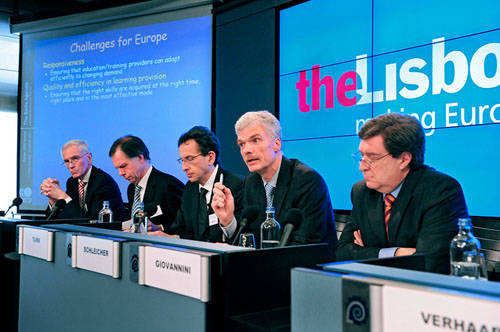
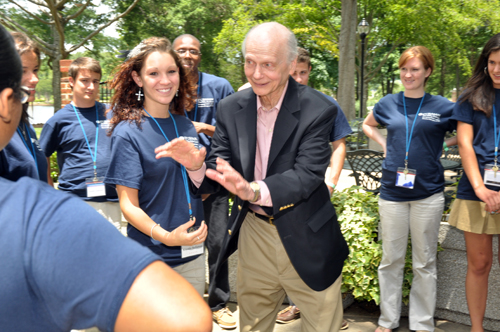


نظرات اخیر